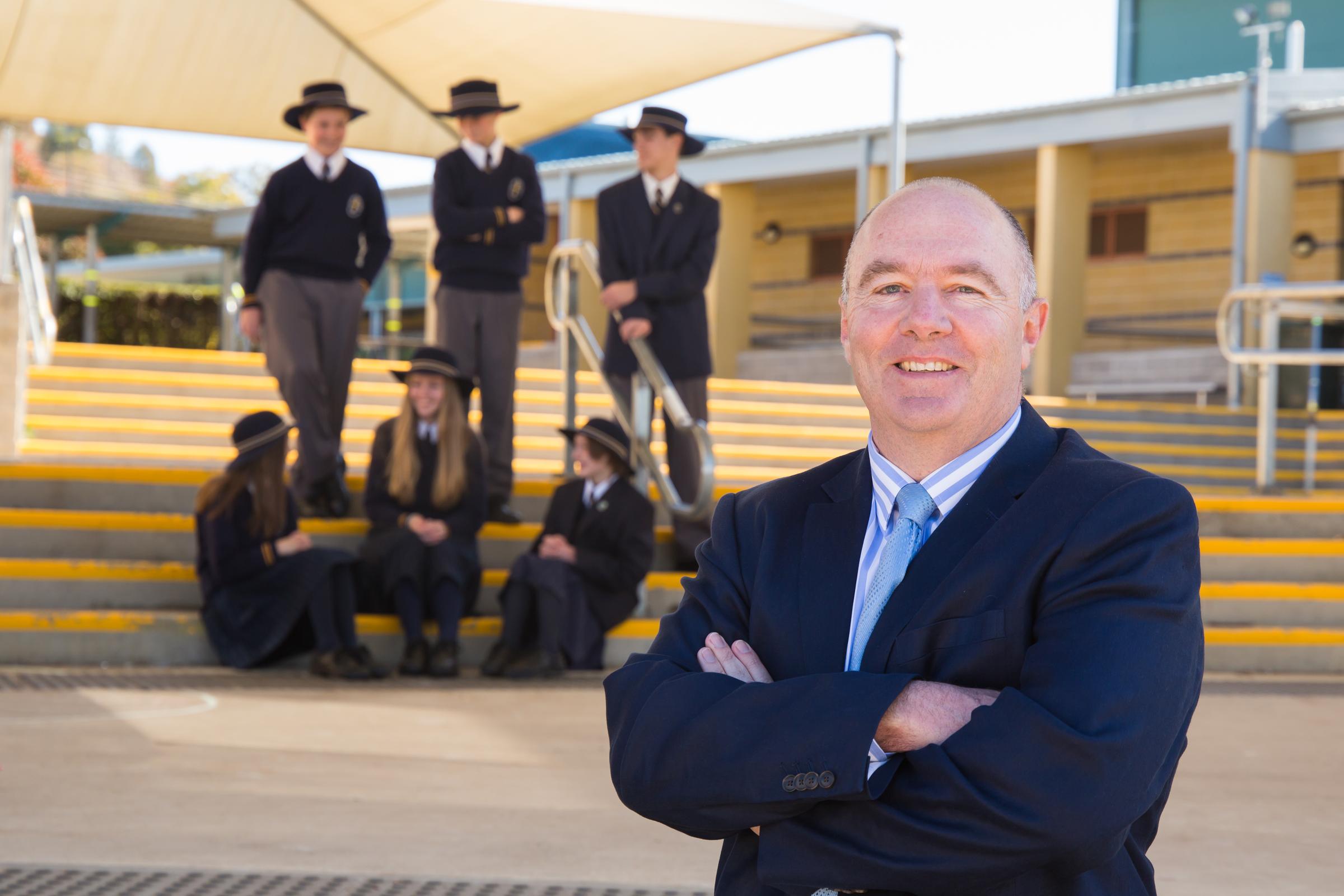Assistant Principal - Pastoral Care

Grit
Roger Federer recently delivered a speech to graduating university students. His speech provides excellent insights for us all about what it takes to do our best in life:
‘‘ Most of the time it’s not about having a gift. It’s about having grit.’’
‘‘From this day forward, some people are going to assume that because you graduated from Dartmouth, it all is going to come easy for you,’’ Federer said. ‘‘And you know what? Let them believe that – as long as you don’t.’’
In his career, he played 1526 singles matches and of those, he won just under 80 per cent of them. In all those matches, he won only 54 per cent of the points. ‘‘Even top ranked tennis players win barely more than half of the points they play. When you lose every second point on average, you learn not to dwell on every shot. You teach yourself to think ... ‘It’s only a point’.’’
Broadly, whatever you do, you need to accept that you won’t win everything. It is inevitable, both that you will make mistakes and your competitors will display blinding flashes that will beat you.
‘‘You want to become a master at overcoming hard moments. That is, to me, the sign of a champion. And, not the best because they win every point. It’s because they know they’ll lose again and again, and have learnt how to deal with it. You move on, be relentless, adapt, and grow.’’
As our students reach the end of a long term it is fitting that we reflect on some of the important ‘truths’ that they need to be focusing upon . Similar to Federer, Michael McQueen, came up with a list of five key truths our young people need to accept when they leave school.
“Unlike your parents who were raised being told that life was never meant to be easy, you have been told the very opposite message by advertisers and pop culture - that if life isn't easy, then something is wrong. If the relationship gets hard? Wrong person. Subject at TAFE/Uni is difficult? Wrong course. Job gets tough? Wrong career path. The problem with this is that every worthwhile pursuit starts off being difficult. Mastery however lies on the other side of hardship. It is in the challenges that your capacity is increased, your character will be forged and your resilience is strengthened. Sometimes life is hard and that's OK. Your grandparents were right - what doesn't kill you truly does make you stronger.” (M McQueen)
Too readily in our culture we think that something is worthless if it is not entertaining, stimulating or exciting (consider the negative connotations associated with the word ‘boring’ or ‘drudgery’). Some things in life are tedious or bland or monotonous but this is what makes the special things or moments, special. If everything was wonderful all of the time, wonderful simply becomes the new boring. Shakespeare made this observation over 500 years ago in King Henry IV Part 1,
If all the year were playing holidays, To sport would be as tedious as to work; But when they seldom come, they wished for come, And nothing pleaseth but rare accidents.
School must be a place where students learn to work hard, where rigour is not dismissed as ‘boring’ but embraced as a challenge that will stretch and extend us to new capacities. Whilst ‘entertaining’ has its place in learning, we must be judicious and mindful of its place in the curriculum. I love McQueen’s sentence that “Mastery however lies on the other side of hardship.” Schools must create a culture where students both see and value this concept – that through their sustained effort comes the reward of accomplishment and this often means completing things that aren’t as entertaining as games or a sport or a relaxing leisure activity. The arduous task, the demanding activity, the frustrating experience is invaluable to our growth.
In Heart of Darkness Joseph Conrad says:
“I don't like work - no man does - but I like what is in the work - the chance to find yourself.”
The way we approach work shapes and defines who we are. As Coach Taylor tells one of his charges in Friday Night Lights, “it’s all in the try”. The result itself is nowhere near as important as how you go about getting there because this is what you will draw upon for the rest of your life – the habits, the mindset, the patterns of action when under pressure – these are the vital resources that sustain people through a working life. But if students constantly pursue that which entertains them and only “try” that which is fun and run from that which is difficult or dull they will ultimately struggle to find fulfilment in their working life. They will struggle to have a working life.
And so the formula is as simple as that, ‘hard work’; the two words that are the secrets to personal success, or as Federer said it’s about “grit”.
Mick Larkin
Assistant Principal - Pastoral Care
